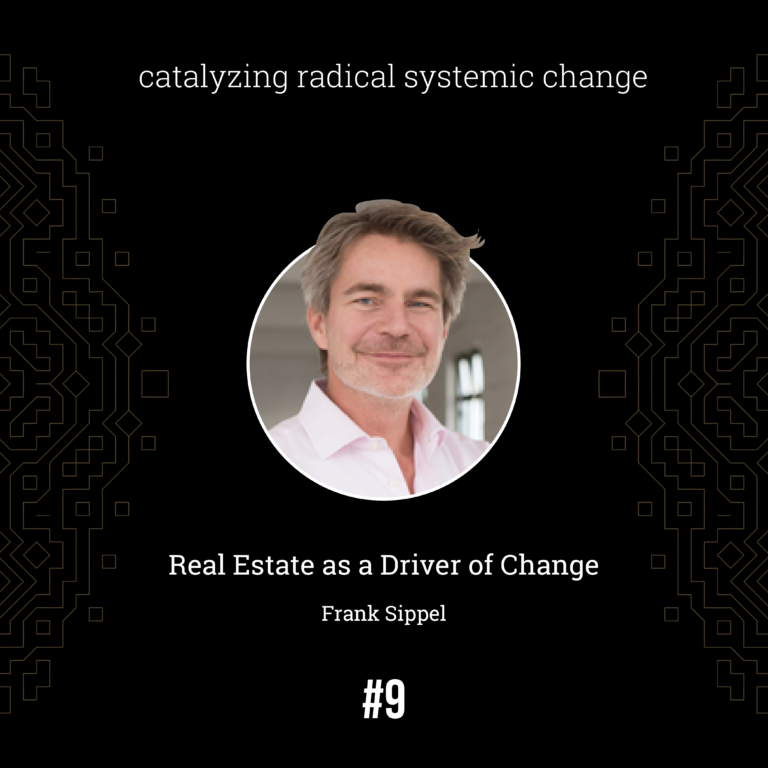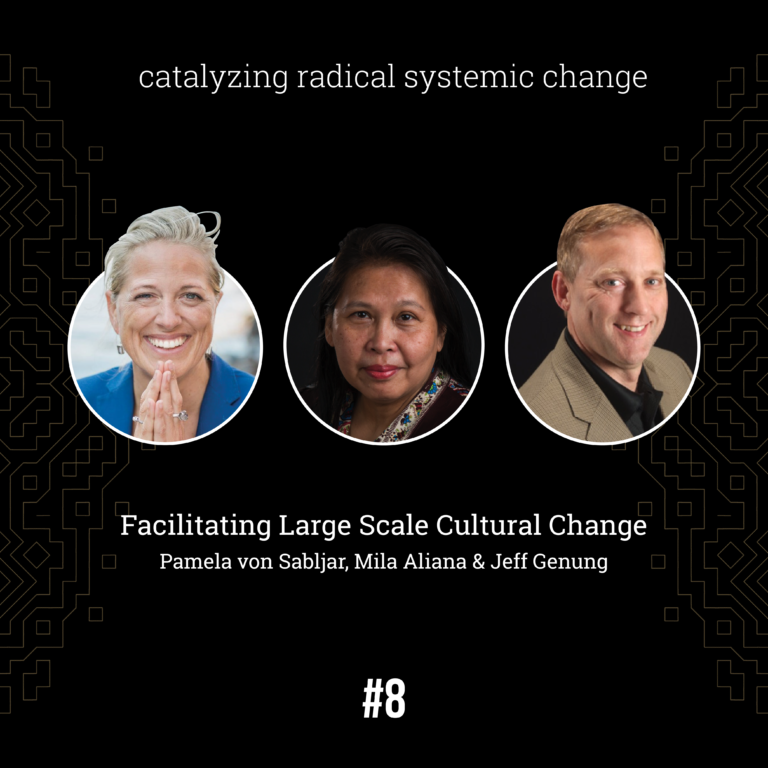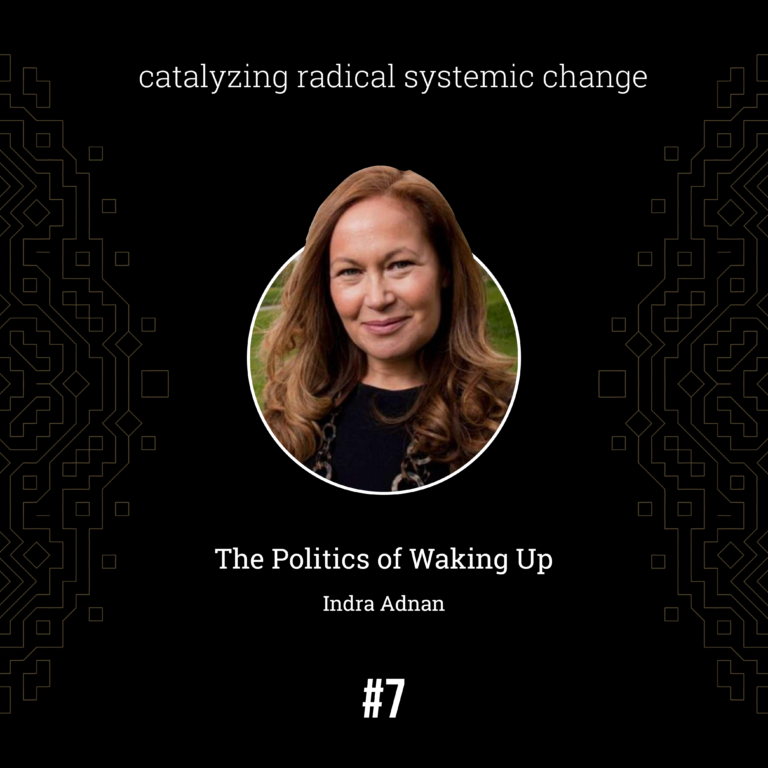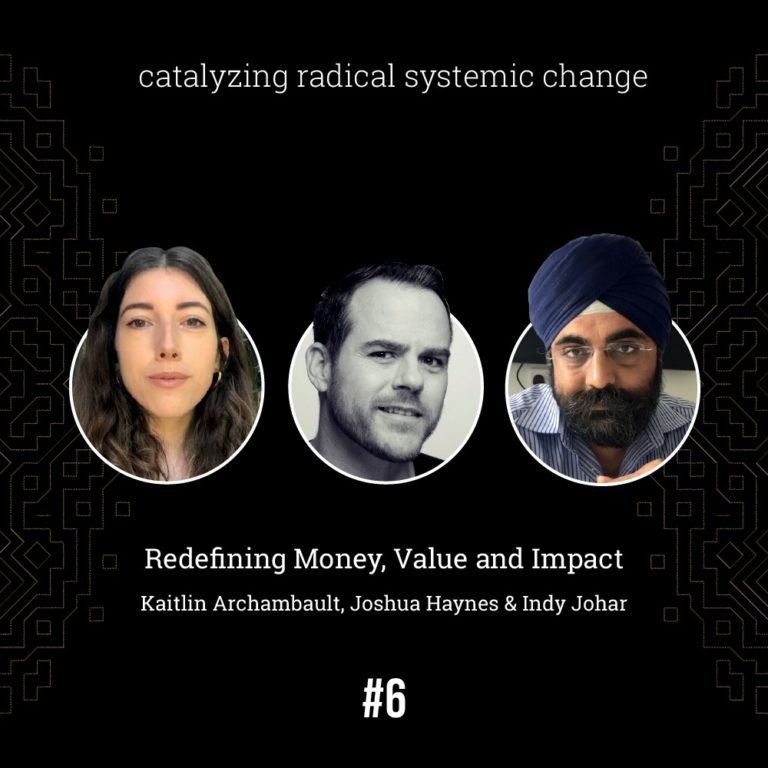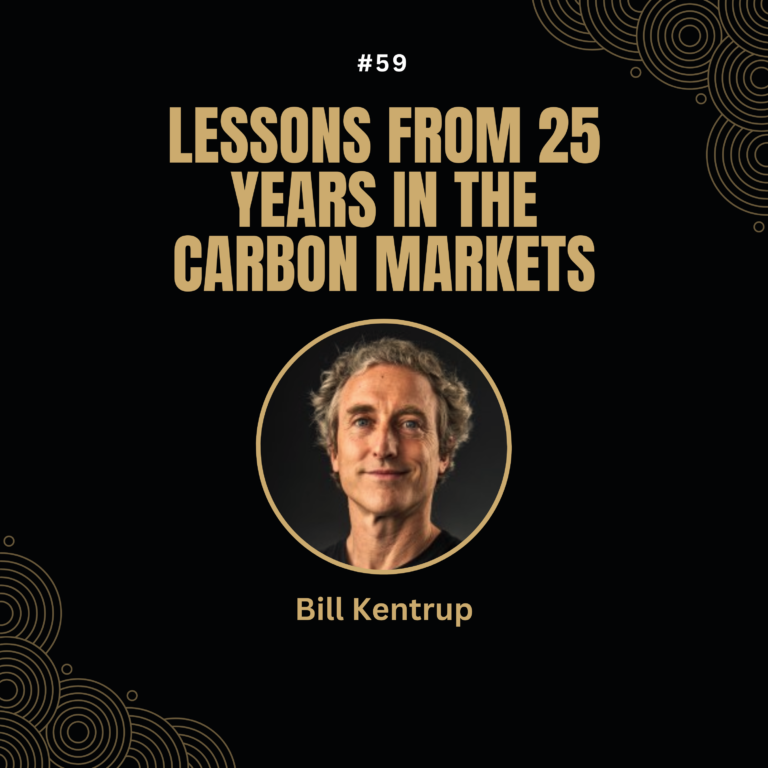Post-Capitalist Philanthropy
I want to start our podcast with a prayer. Assuming that we share the same values and the burning desire to make a difference in a world full of entangled, cascading crises.
I agree with all key arguments from your book Post-Capitalist Philanthropy.
So, within our podcast – instead of solely focussing on the obvious challenges we face as humanity I want to distil with you what signs of hope we see on the horizon. If any.
This is my prayer
Dear Mother,
I’m just a part of you, Gaia.
Please forgive us for inflicting the harm that we didn’t know better.
May you give me the strength to forgive the others as they forgive me.
May you grant me the serenity to stay strong when things look like doomsday waiting for us.
Please grant me to let my heart stay open through all the pain and suffering that we are causing as the dominant species to you.
May we grow up as one human family caring about all other non-human animals and seemingly non-sentient entities.
May we heal the wounds we caused.
May we embrace that happiness is our birthright.
May we understand that material possessions are not the end but only the means to living a fulfilled life.
Please grant us the sparkles of hope that we need in this crucial century to embark on a joint destiny of healing.
I think it is possible to transition into centuries and millennia ahead as one family on this beautiful planet called Earth.
I think it is possible to heal the multitudes of pain and suffering.
I think it is possible to create regenerative models of living and being.
I think it is possible to share with all fellow beings.
I think it is possible to love one another.
I think it is possible to bridge the many divides.
I think it is possible to hold each others hands.
May we embark on that joint journey with our hearts wide open,
firmly grounded in your fertile soil.
May we envision and manifest a joint destiny in peace, love, unity and abundance, with you, Gaia.
Amen.
Key Arguments from Post-Capitalist Philanthropy:
- Capitalism has inherent flaws that perpetuate inequality, environmental degradation, and social injustices.
- Philanthropy, as practiced within the capitalist system, often maintains the status quo and fails to address root causes.
- Post-capitalist philanthropy seeks to transform the underlying systems and structures that create and perpetuate societal problems.
- Philanthropists should prioritize systemic change, challenge power imbalances, and support movements working towards equitable and sustainable futures.
- Collaboration and solidarity among philanthropic organizations and grassroots movements are essential for effective systemic change.
Key Arguments from Alnoor Ladha
- Capitalism’s focus on profit maximization and growth leads to exploitation of people and the planet.
- Philanthropy, in its current form, acts as a Band-Aid solution that fails to address the root causes of systemic problems.
- Philanthropists must shift their focus from charity and individual projects to challenging and transforming the systems that perpetuate inequality and environmental destruction.
- Genuine change requires redistributing wealth and power, democratizing decision-making, and centering marginalized communities.
- Social and environmental justice movements are critical catalysts for systemic change, and philanthropists should support these movements by leveraging their resources and networks.
Podcast Questions
- How can post-capitalist philanthropy challenge the systemic flaws of capitalism and contribute to radical systemic change?
- What are the limitations of traditional philanthropy in addressing root causes, and how can we move towards a more transformative approach?
- What strategies can philanthropists employ to actively challenge power imbalances and support movements working towards equitable and sustainable futures?
- How can collaboration and solidarity between philanthropic organizations and grassroots movements strengthen the impact of systemic change efforts?
- What role does wealth redistribution, democratizing decision-making, and centering marginalized communities play in catalyzing genuine and lasting change?
- How can philanthropists effectively leverage their resources and networks to support social and environmental justice movements?
- Finally, since the book is about anything post-capitalist: How do you envision a post-capitalist society?
Alnoor Ladha
is Co-director of Transition Resource Circle, Council Chair for Culture Hack Labs and Co-author of “Post Capitalist Philanthropy”.
From 2012 to 2019 he was the co-founder and executive director of the global activist collective The Rules. He holds an MSc in Philosophy and Public Policy from the London School of Economics.
He lives in Costa Rica at Brave Earth, a center for applied cultural transition.




